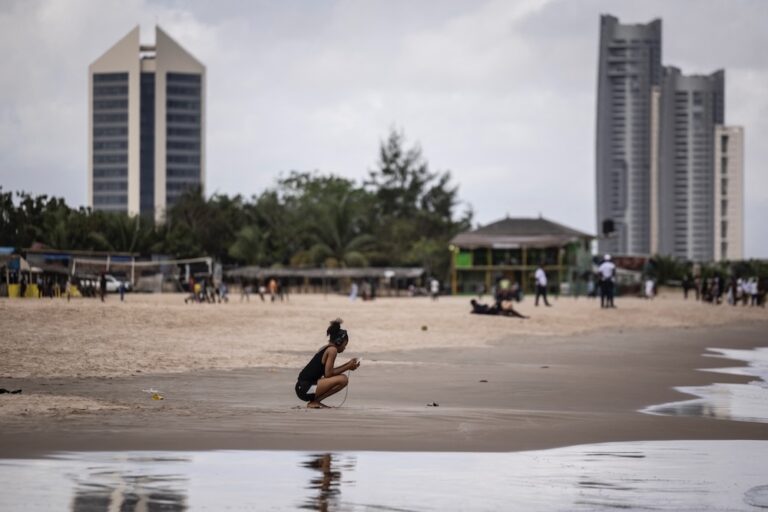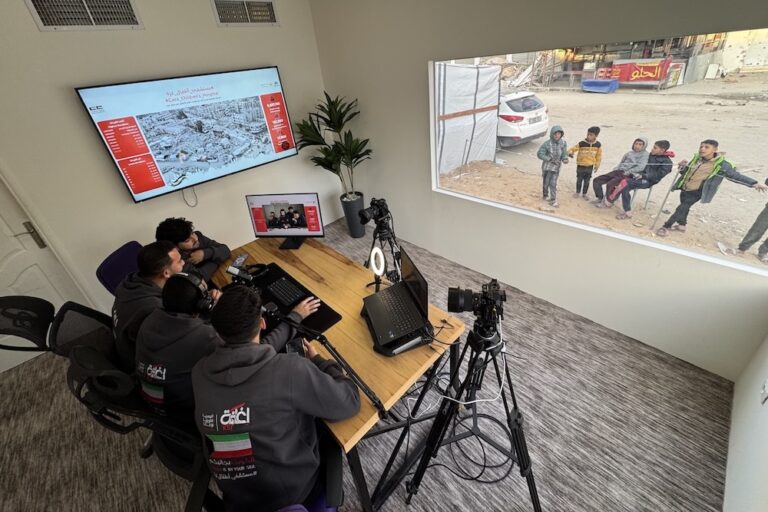(CPJ/IFEX) – The following is a CPJ press release: From Russian repression to new risks in Iraq, CPJ recounts a deadly year in Attacks on the Press New York, March 14, 2005 – Press conditions are deteriorating badly throughout Russia and most of the other former Soviet republics, the Committee to Protect Journalists details in […]
(CPJ/IFEX) – The following is a CPJ press release:
From Russian repression to new risks in Iraq,
CPJ recounts a deadly year in Attacks on the Press
New York, March 14, 2005 – Press conditions are deteriorating badly throughout Russia and most of the other former Soviet republics, the Committee to Protect Journalists details in its newly released analysis of press conditions worldwide, Attacks on the Press in 2004. CPJ’s annual survey also documents the dramatic shift in risk in Iraq toward local journalists; the widespread use of vague “antistate” laws to imprison dozens of journalists from China to Cuba; the critical battle against criminal defamation laws in Latin America; and the first imprisonment of a U.S. journalist in three years.
Reported and written by CPJ staff, Attacks on the Press features a preface by NBC News journalist and CPJ board member Tom Brokaw. “Remember 1989?” Brokaw writes. “The collapse of the Soviet Union and the rise of democracy and democratic institutions in the old Communist bloc, including Mother Russia, inspired a new generation of journalists in places where a free press had been a state crime. . . . Now, 15 years later, the glow of the golden age has been tempered by new realities.”
Nowhere are new, harsh realities more evident than in Russia, where a purge of independent voices on national television and an alarming suppression of news coverage during the Beslan hostage crisis marked a year in which President Vladimir Putin increasingly exerted Soviet-style control over the media. CPJ’s analysis of the 15 former Soviet republics showed that since the Soviet Union collapsed in 1991, strong press freedom traditions have been established in only three of the post-Soviet states – the tiny countries of Latvia, Lithuania, and Estonia. Developments in Ukraine offer hope, but elsewhere the press operates with less freedom than it did in the closing years of Soviet communism.
Drawing from hundreds of cases of media repression in 90 countries – including murders, assaults, imprisonment, censorship, and legal harassment – Attacks on the Press documents several other alarming trends:
– A total of 56 journalists were killed worldwide as a direct result of their work last year, making 2004 the deadliest year for journalists in a decade. The toll is the largest since 1994, when 66 journalists were killed, many in Algeria’s bloody civil war.
– Iraq was the most dangerous place for journalists in 2004, with 23 journalists killed in the line of duty. The toll made the war in Iraq one of the deadliest conflicts for journalists in recent history. And, in a striking development, most of the journalists killed in Iraq in 2004 were local Iraqi reporters.
– Even in a year of war, murder was the leading cause of work-related deaths among journalists. Thirty-six of the 56 journalists killed on duty in 2004 were targeted for murder, continuing a long-term trend documented by CPJ.
– Continuing another trend, the killers of journalists usually go unpunished. In all but nine cases in 2004, CPJ found, the murders were carried out with impunity. The worst of those countries was the Philippines, where the murders of 48 journalists have gone unsolved since 1986.
– A total of 122 journalists were in prison around the world for their work, a figure down slightly from the year before. Four countries with long records of media repression account for more than three-quarters of the total: China with 42 journalists behind bars, Cuba with 23, Eritrea with 17, and Burma with 11.
– In at least 74 cases, CPJ found, journalists were imprisoned on broad “antistate” charges, such as sedition, subversion, divulging state secrets, and working against the interests of the state.
– For the first time in three years, CPJ’s list of imprisoned journalists includes a U.S. reporter. Jim Taricani, of WJAR-TV in Providence, R.I., is serving six months of home confinement for refusing to divulge a source.
Despite these assaults on the press, CPJ found several important achievements. International advocacy efforts, including those waged by CPJ, helped win the early release of a number of imprisoned journalists, notably six independent writers and reporters in Cuba. Among them was Manuel Vásquez Portal, winner of CPJ’s 2003 International Press Freedom Award.
In Latin America, a landmark legal decision could significantly strengthen freedom of expression guarantees. The Inter-American Court of Human Rights overturned the criminal defamation conviction of a Costa Rican reporter in a ruling that should make it far more difficult for Latin American governments to prosecute the press on criminal charges.
With an introduction by CPJ Executive Director Ann Cooper, Attacks on the Press is widely recognized as the most authoritative source of information on international press conditions.
Attacks on the Press will be released officially in Washington, D.C., on March 14.
The Committee to Protect Journalists is a non-partisan, nonprofit organization dedicated to defending press freedom worldwide. For more information, visit http://www.cpj.org.


